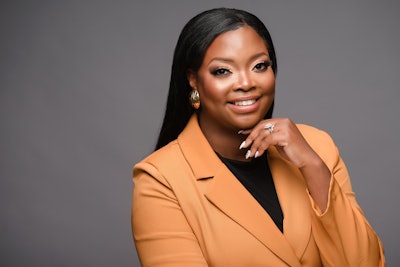Dr. Samantha L. Strachan said she wants to figure out why fewer than 2% of all teachers in the U.S. are African American men and what can be done to improve that number.
“While we know that they bring value to the classroom, they’re very much absent in the classroom as educators, as teachers,” said Strachan, acting chair of the Department of Teacher Education & Leadership at Alabama A&M University.
“Being at the largest HBCU in Alabama, I had the experience of training quite a bit of exceptional male teachers who would go on to do great things in the schools,” Strachan said. “I wanted to know how we could get more into schools, but I also wanted to know what was keeping them out, why they’ve decided not to continue if they started, and what do they perceive to be some of the challenges, issues, points of engagement for teacher education.”  Dr. Samantha L. Strachan
Dr. Samantha L. Strachan
Strachan has been focusing her scholarly work on this topic for almost as long as she has been at Alabama A&M, 8-9 years, she said. Her research focuses on the experiences of African American men on the teacher education pathway, such as their day-to-day lives while training, their feelings and perspectives, and their motivations in wanting to teach.
Strachan, who is a member of the Board of the Alabama Science Teachers Association (ASTA), holds a doctorate in science education from Morgan State University; a Master of Secondary Education (biology) from Alabama A&M; and a B.S. in biology from Mount Allison University. Before Alabama A&M, she was a science education research assistant doing research on improving science education for urban students, particularly those of African descent, according to her faculty bio.
She also serves as project director of the Males for Alabama Education (MALE) initiative, a state-funded program scholarship and mentorship program for minority men walking the teacher education pathway.
The MALE program was launched in 2019, months before the start of the COVID-19 pandemic, Strachan pointed out, but said that has not stopped its efforts. The initiative offers scholarships up to $10,000 per academic year, books and support for testing, seminars, professional development, and community service hours.
Strachan had already been doing research in the field at the time of the project’s creation, and she said she was brought onto the project by its creator, Dr. Lena Walton, dean of Alabama A&M’s College of Education, Humanities, and Behavioral Sciences.
“Once we received funding from the state, I was able to collaboratively develop the program,” Strachan said. “We have an academic adviser. We also have an academic coordinator who coordinates daily activities. I serve as a director to make sure we’re going in a direction that will continue to grow the program.”
As she learns more about the experiences of Black men wanting to be teachers, she wants to use that knowledge to bolster how they are prepared and supported on their preparatory journey.
“That research is, for me, to lend itself to what [administrators of] teacher preparation programs should be thinking about when trying to engage, for instance, Black men in education as well as what they should be thinking about once these students are enrolled in educator preparation programs,” Strachan said.





















